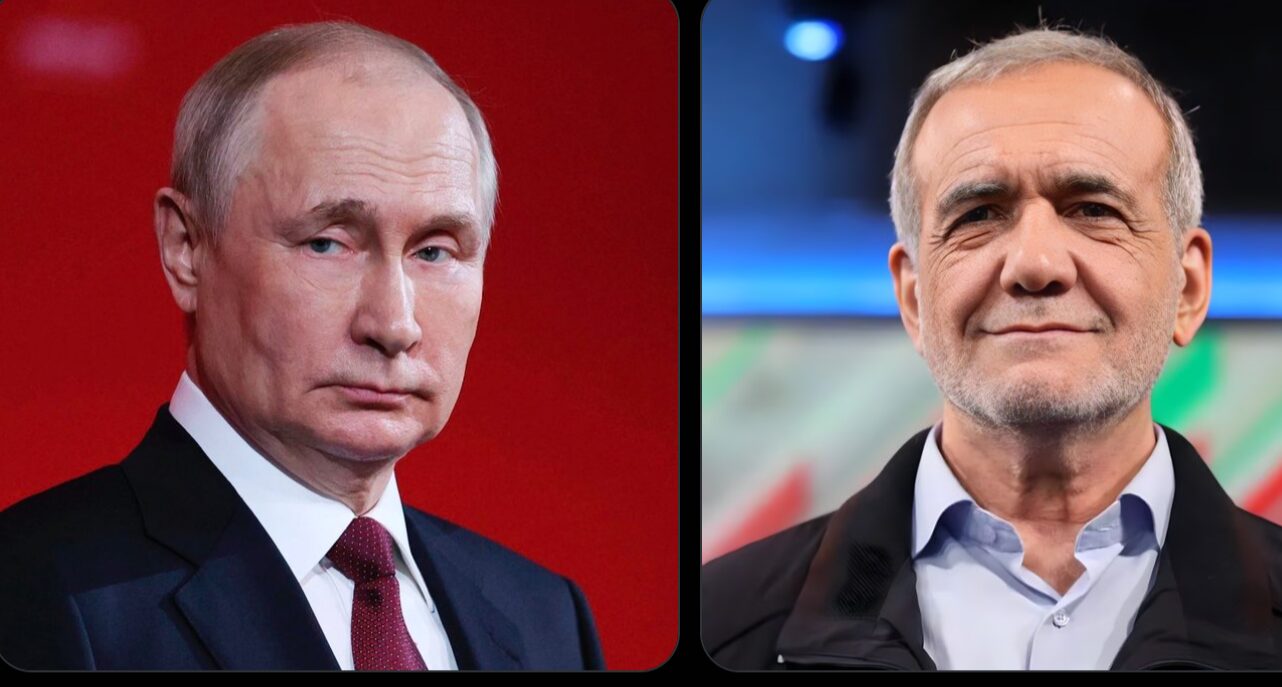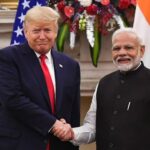RUSSIA & IRAN to establish a confidential financial channel to BYPASS SWIFT
In a bold and strategic move, Russia and Iran have announced plans to establish a confidential financial channel aimed at bypassing the SWIFT (Society for Worldwide Interbank Financial Telecommunication) system. This decision marks a significant shift in the global financial landscape, as both countries have faced increasing economic sanctions from the West. By creating their own financial system, Russia and Iran aim to reduce their dependence on international financial networks and ensure the continued flow of trade and resources despite growing geopolitical tensions. This new partnership not only challenges the dominance of the SWIFT system, which is currently the backbone of global financial transactions, but it also signals a deepening economic alliance between the two nations.
The SWIFT System: A Tool for Global Finance and Sanctions
SWIFT is a messaging network used by over 11,000 financial institutions worldwide to send secure and standardized messages about financial transactions. The SWIFT system plays a crucial role in facilitating international trade, enabling the transfer of funds between countries, and ensuring the stability and transparency of the global financial system. However, SWIFT has also been weaponized by Western powers, particularly the European Union and the United States, to impose economic sanctions on countries they view as threats to international security or human rights.
Both Russia and Iran have faced SWIFT-related sanctions in recent years. In 2014, Russia was removed from the SWIFT system as part of the European Union’s sanctions following the annexation of Crimea. Similarly, Iran has been subjected to sanctions since 2012, primarily due to its nuclear program, which led to its exclusion from the SWIFT network. As a result, both countries have faced considerable challenges in executing international financial transactions, which have negatively impacted their economies and global trade relations.
In response to these pressures, Russia and Iran have explored alternative financial channels that could allow them to bypass SWIFT and reduce their reliance on Western-controlled financial systems.
The Russia-Iran Financial Channel: A Strategic Alliance
The decision to establish a confidential financial channel between Russia and Iran is seen as a strategic move to strengthen their economic and political ties, especially in light of the economic isolation both countries have faced. By setting up an independent financial system, the two nations hope to maintain their international trade and investment flows while circumventing Western sanctions. This new channel could serve as a mechanism for transferring funds, executing trade agreements, and facilitating investment without relying on the global financial system dominated by Western institutions.
The proposed financial channel would likely use encrypted technology and private banking networks to ensure the confidentiality and security of transactions. By keeping their transactions out of the SWIFT system, Russia and Iran could conduct trade in a more covert manner, potentially avoiding the reach of Western sanctions and minimizing the risk of interference from global financial institutions. This move would also demonstrate both countries’ resilience in the face of external pressures and their willingness to seek alternative solutions to global financial challenges.
Impact on Global Trade and Financial Systems
The creation of an alternative financial channel between Russia and Iran has significant implications for the global financial system. While SWIFT has long been considered a cornerstone of international trade and finance, Russia and Iran’s decision to bypass the system could inspire other countries, especially those facing Western sanctions, to pursue similar alternatives. If successful, this new financial channel could lead to the creation of rival systems, diminishing the dominance of SWIFT and reducing the control Western powers have over global financial transactions.
For countries that are critical of U.S. foreign policy and the international sanctions regime, this move could offer a blueprint for reducing their dependence on Western financial networks. Nations like China, Venezuela, and North Korea, which have also been subjected to sanctions, may look to Russia and Iran’s model as a way to shield their economies from the impact of sanctions and trade restrictions.
Furthermore, if Russia and Iran succeed in establishing a reliable alternative to SWIFT, it could influence the way global businesses approach trade and finance. Multinational companies and financial institutions might begin to explore options for conducting transactions through non-Western channels, particularly if they are dealing with countries under sanctions or seeking to avoid the risks associated with SWIFT.
The Role of China and Other Countries in the New Financial Landscape
China’s involvement in this financial channel could play a crucial role in its success. As one of Russia and Iran’s most important trading partners, China is likely to be a key player in facilitating and supporting the development of this new financial system. China has already made moves to reduce its reliance on the SWIFT network, notably with the creation of its own payment system, the Cross-Border Interbank Payment System (CIPS). CIPS allows Chinese financial institutions to settle international transactions without relying on SWIFT, offering a potential alternative for countries that want to avoid the U.S. dollar and Western financial controls.
By collaborating with Russia and Iran on a new financial network, China could strengthen its position in the global financial system and increase its influence over international trade. This could be especially appealing to countries seeking to diversify their financial relationships and reduce their vulnerability to U.S. sanctions. Additionally, other countries that have been targeted by Western sanctions may see this as an opportunity to join a broader, multipolar financial network that is less dependent on Western institutions.
Potential Risks and Challenges
While the establishment of a confidential financial channel between Russia and Iran is a bold step, it is not without its risks and challenges. One of the primary obstacles is the potential resistance from Western powers, particularly the U.S. and the European Union. These countries have significant influence over global financial institutions and could take steps to undermine or disrupt the new system. For example, the U.S. could impose secondary sanctions on countries or companies that choose to participate in the Russia-Iran financial channel, making it more difficult for them to access international markets.
Another challenge is the technical and logistical complexity of creating an alternative financial system. SWIFT’s success is due in part to its widespread adoption by financial institutions worldwide, and replicating this level of infrastructure and trust will be a significant challenge for Russia, Iran, and their partners. Building a secure, reliable, and scalable financial network requires substantial investment in technology, regulatory frameworks, and international cooperation.
Additionally, there are concerns that bypassing SWIFT and establishing a covert financial system could raise suspicions of illegal activities, such as money laundering or terrorism financing. Both Russia and Iran are already subject to scrutiny from international regulators, and this new financial channel may attract additional attention from global watchdogs and law enforcement agencies.
The Future of Global Financial Networks
The potential establishment of a confidential financial channel between Russia and Iran is a critical moment in the evolution of global financial networks. As both countries work to create alternatives to SWIFT, they are signaling a desire to challenge the existing global financial order and reduce the influence of Western powers. While the success of this new system remains uncertain, it represents a growing trend of countries seeking financial independence and alternatives to the U.S. dollar-dominated financial system.
As the world becomes increasingly multipolar, with shifting alliances and new economic power centers emerging, the role of alternative financial channels will likely become more pronounced. Whether this new financial system between Russia and Iran will reshape the global financial landscape remains to be seen, but it certainly signals a new era of financial and geopolitical maneuvering that could have far-reaching consequences for international trade and finance.
In Conclusion
Russia and Iran’s decision to establish a confidential financial channel to bypass SWIFT is a significant step in their efforts to reduce dependence on Western-controlled financial systems. By creating an alternative to SWIFT, the two countries aim to protect their economies from sanctions and strengthen their economic ties.
While this move has the potential to reshape the global financial landscape, it also faces considerable challenges, including resistance from Western powers and the technical complexities of creating a new financial infrastructure. As the situation develops, the world will closely monitor the impact of this new financial channel on global trade and the balance of power in international finance.

















Post Comment